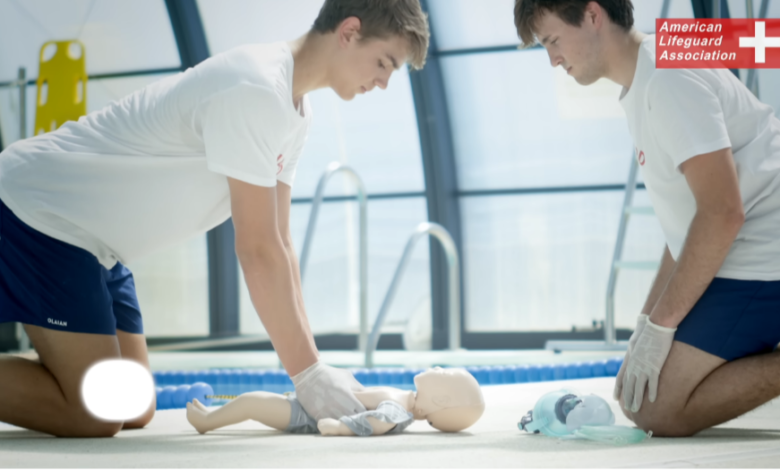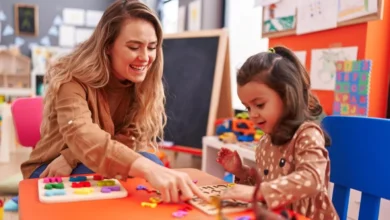Enjoying Safety and Leadership with Junior Lifeguard Training

The training program for junior lifeguards is among the few programs to build confidence, leadership skills, and a sense of responsibility. These courses are for the young passionate about water safety and impart useful skills that last a lifetime. Whether your child wants to pursue his dream of being a professional lifeguard or just wants to know how to stay safe around water, training offered in junior lifeguard programs provides all the necessary skills in a fun atmosphere.
In this article, we will discuss the benefits of taking a junior lifeguard training program, the key skills that participants learn, and about associations like the American Lifeguard Association which helps to prepare the next generation of water safety professionals.
Why Junior Lifeguard Training Matters
Youth water safety is a risk area when children have access to swimming pools, the beach, and lakes. Drowning is one of the leading causes of accidental death in children. With that in mind, it is easy to see that teaching youth water safety and basic lifesaving skills is important. Junior Lifeguard Programs are more than swimming lessons, they will also teach rescue skills, first aid, and team-builder skills that will prepare a child to take part in their own safety and the safety of others.
To begin, participants will learn:
- Water Rescue Skills. Youths learn to recognize distress signals and basic rescues.
- First Aid & CPR are life-saving skills that can be applied anywhere.
- Personal Fitness involves the building condition, endurance, strength, and swim skills.
- Confidence and Leadership teach decision-making and maintaining composure in emergencies.
What to Expect in Junior Lifeguard Classes
The lifeguard classes offering different lifeguard courses are designed to be informative and enjoyable. Though there may be slight variations in the program, most classes concentrate on important points, such as:
1. Swimming Skills
Rescue skills are taught only after strong swimming skills are attained. Generally, swimming classes consist of timed swims, treading water, and endurance drills to achieve maximum comfort for each junior lifeguard candidate in the water.
2. Rescue Skills
Junior lifeguards learn to rescue swimmers in distress using different means:
- Reach-Assist Rescues-Keeping them out of danger using poles, ropes, etc.
- Throw Rescues-Accurately throwing various floating devices to swimmers in need.
- Passive & Active Victim Saves-Techniques to save conscious and unconscious people.
3. First Aid & CPR
Basic medical training is one of the cornerstones of any lifeguarding class. Students are taught how to:
- -Care for and perform CPR on adults, children, and infants.
- -Operate an automated external defibrillator (AED).
- -Administer first aid for minor injuries, such as cuts, bruises, and sprains.
4. Teamwork & Communication
Very rarely does one lifeguard act alone. Programs for juniors place a strong emphasis on teamwork and the communication skills required during an emergency to collaboratively keep everyone safe.
5. Leadership Skill Development
Aside from honed physical skills, aside from working leadership skills, junior lifeguard training places a major emphasis on responsibility, good problem-solving capabilities, and the ability to remain calm in a stressful situation-these are skills transferable in every aspect of life.
Read more: Worn Loud, Worn Proud: The Raw Energy Behind Hellstar
American Lifeguard Association’s Role
When selecting a junior lifeguard program, it is crucial to choose one endorsed by a credible organization. The American Lifeguard Association (ALA) tops the list when it comes to lifeguarding training and certification, known for maintaining the most exacting standards and for its comprehensive programs.
Because the ALA wants its junior lifeguard programs not only to instruct but also to entertain, those junior participants are assured the best training. Their courses meet industry standards, thus training children for certification levels far advanced should they decide to evolve further into lifeguarding proficiency as a career.
Long-Term Advantages of Junior Lifeguard Training
The skills learned in junior lifeguard training reach far beyond pools and beaches. Among other properties, program participants acquire traits beneficial to school, sports, and future professions such as:
- Discipline & Responsibility-There are requirements of focus and accountability in lifeguarding.
- Physical Wellness-Regular swimming and training maintain soundness in lifestyle practice.
- Community Awareness-Junior lifeguards often emerge as advocates for water safety in their communities.
- Job Opportunities-Many junior programs are the starting ground for professional lifeguarding, hence, early exposure gives them an edge over others in the certification courses.
Initiate Your Child in Junior Lifeguard Training:
For any child curious about being part of a junior lifeguard program, this is how one goes about it:
- Find a reputable program to check courses organized by institutions like the American Lifeguard Association or the local aquatic centre.
- Check their swimming skills – almost all programs will require participants to be very good swimmers to be eligible for the program.
- Prepare Physically & Mentally- Building endurance and regular swimming practice may help your child prepare.
- Registration & Participation. Once signed up, your child should be in attendance through the sessions and commit to the training.
Final Remarks
American lifeguard junior training is not a summer activity-it is an investment in safety, leadership, and personal growth. Young people take lifelong skills that protect their own lives and other along with developing lifelong measures of self-confidence and self-control through lifeguard classes.
The American Lifeguard Association is one of the many organizations established for the quality training of junior lifeguard programs that prepare future lifeguards for the challenges of today. Junior lifeguard programs can be useful and enjoyable for everyone, whether your child wishes to become a lifeguard himself or only wants to add more safety to their surroundings.
As for you considering lifeguard training for your child, the time couldn’t be better. What they learn today might save someone else’s life tomorrow.





